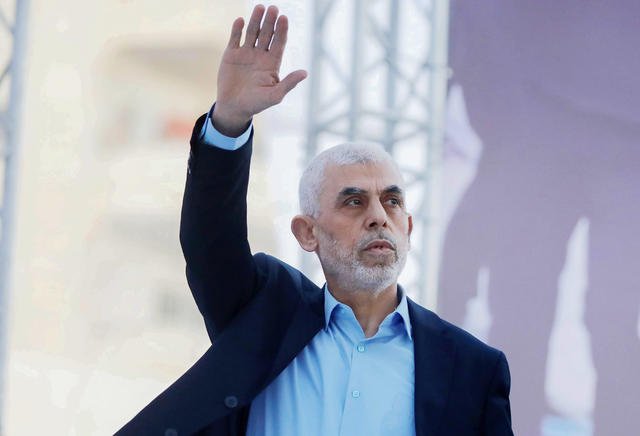
Yahya Sinwar: The Rise, Role, Influence & death of Hamas’ Political Leader in 2024
The possible death of Hamas leader Yahya Sinwar in the Israeli offensive against Gaza is a major event. He is said to have been killed by an Israeli airstrike in reports that could alter the regional dynamics.
Introduction
The most prominent figure in the Palestinian arena, and – without question — within Hamas itself, is Yahya Sinwar. As a senior figure in the Hamas political and military wings, his capacity for doing so is considerable. Sinwar rose to prominence mainly after he was elected as the top leader of Hamas in Gaza in 2017. He succeeded Ismail Haniyeh, who became prime minister in 2006 and inherited the leadership of Hamas during a difficult time for both his organization and as many Palestinians thought at the height of an uprising against Israeli occupation that year for Palestine.
The political evolution and tactical decisions of Sinwar have played an undeniable role in setting the path that has led Hamas, along with the wider Israeli Palestinian conflict. His maiden speech as leader of Hamas in Gaza in this exclusive interview, Tyres discusses his life story and experiences inside the prisons of Israeli intelligence to shed light on why he has been an intimidating figure for years among both supporters of Hamas and those monitoring its affairs within Israel.
From Early Life to Fame
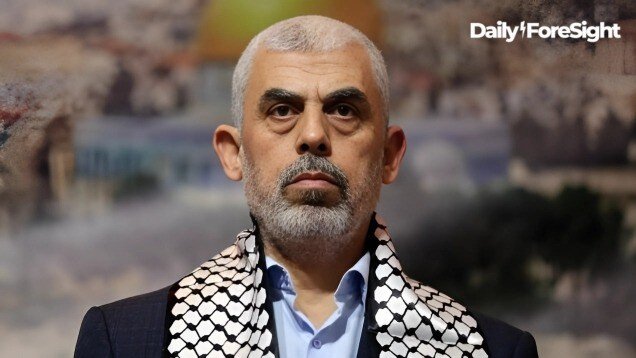
Sinwar was born in 1962 in Khan Younis, a city located just adjacent to Gaza’s border with Egypt. Growing up in the refugee camps of Gaza, Sinwar’s formative years were shaped by experiences that provided him with a staunch sense of hostility against Israeli forces and dedication to Palestinian resistance. He grew up amid the shifting sands of Gaza’s political landscape, with its social difficulties and perennial flashpoints between Israelis and Palestinians.
Sinwar’s path to the helm of Hamas started back in the early 1980s when he was among the founding members of its armed wing, Izz ad-Din al-Qassam Brigades. In 1988, he was arrested for his key involvement in the orchestrating of armed resistance operations against Israel. Israel was, at that point, waging war on the leaders of Palestinian resistance groups like Hamas and others. This was a move aimed at destroying the resistance network more broadly, and Sinwar in 1988
Prison and Political Growth
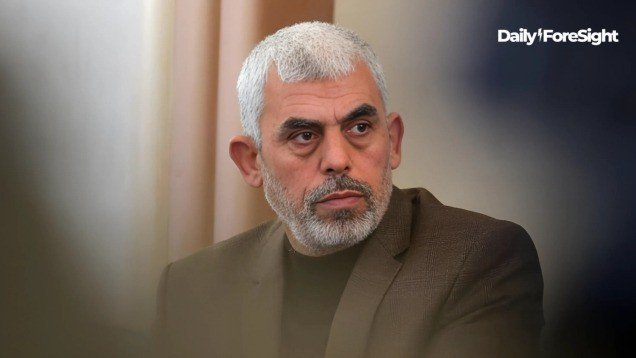
His long years in Israeli jail were central to the construction of Yahya Sinwar as a leader. Sinwar is a former militant commander in the Gaza Strip who served time in Israeli prison and later emerged as one of Hamas’ senior figures. Sinwar is one of the most respected leaders in Hamas and is thought to have helped shape prison leadership within the group’s ranks as well as its decision-making policy during the 22 years he spent behind Israeli bars. But rather than thwarting Hamas leaders by serving Israeli prison sentences, persons often had use of confinement to amass power.
In 2011, Sinwar was released in Israel’s Gilad Shalit prisoner exchange deal, when more than a thousand prisoners were let go from Israeli jails and handed over to Gaza ruler Hamas for the release of kidnapped soldier Gilad Schalit. The deal was an important development for both Hamas and Sinwar, as the organization managed to return such key figures who carry in their experience all of these strategic and ideological characteristics that were necessary, which will fold the road map of what could be laid out by Hamas.
After his release, Yahya Sinwar swiftly renewed his political and advocacy activities to become one of the most prominent leaders in Hamas. Hamas made him the head of internal security, a position that effectively put him in control over much of Gaza.
The Political Philosophy of Sinwar, His Leadership Skills
Yahya Sinwar is an Israeli opponent with a dogmatic commitment to the Palestinian cause. The principles of resistance and steadfastness inspire his political philosophy in response to what he sees as Israeli aggression and occupation. Sinwar, unlike some of his predecessors, favored political diplomacy over military force.
Sinwar has combined pragmatism and radical approaches within Hamas. During that debate, he vigorously advocated for armed resistance against Israel, but Ahmadinejad is also not divorced from the geopolitical landscape in which Hamas and Gaza find themselves. This pragmatism was reflected in his handling of ceasefires and the blockade with Israel and Egypt.
Sinwar was elected leader of Hamas in Gaza, which is an obvious sign that the organization has returned to strengthen its military structure and emphasize its resolve for a steadfast confrontation with Israel. Yet, Sinwar has also proved willing to get involved in temporary ceasefires with Israel in return for relief donations reaching the coastal enclave. This dual strategy has received both praise and ire among Gazans as well as in wider Palestinian territories where he is not popular.
Sinwar’s Role in Hamas Operational Strategy
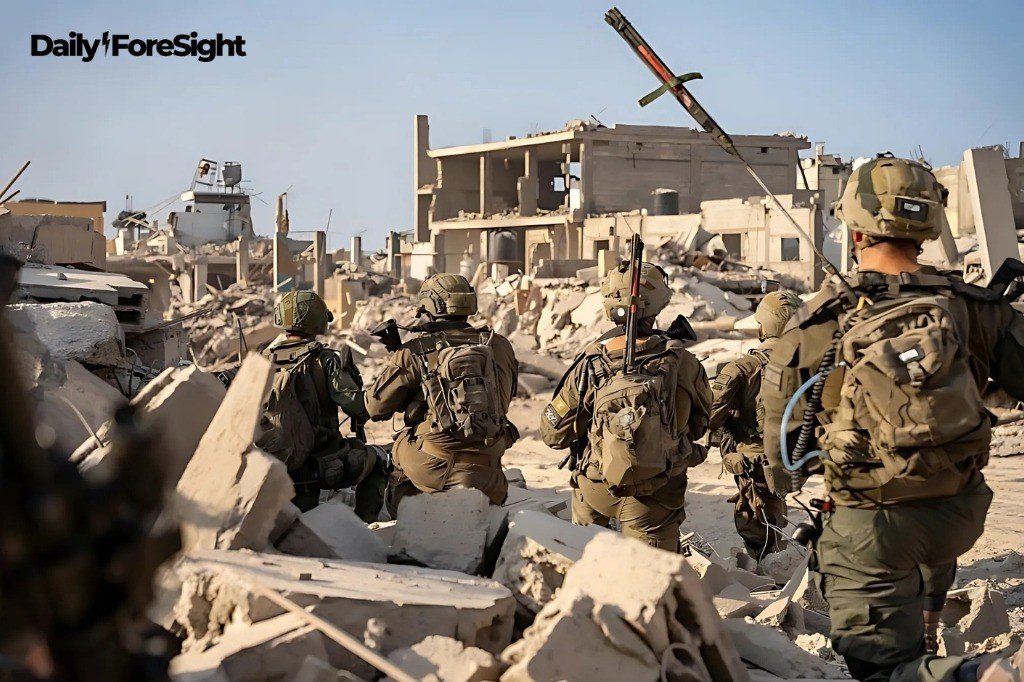
Sinwar wields a broader influence in Hamas than his official leadership role. He is said to be a leading figure overseeing the group’s warfare operations. His work with the Izz ad-Din al-Qassam Brigades and his commitment to enhancing Hamas military preparedness also make him a significant player in shaping the militant group’s strategic doctrine.
He has played a key role in efforts by Hamas to reconstruct its military infrastructure, especially after the wars with Israel in 2014 and subsequent rounds of fighting. It has entailed the reshaping of the organization’s military arm to meet Israel’s new strategies and tactics. For instance, during Sinwar’s entire leadership period, Hamas worked on diversification of resistance mechanisms such as building tunnel networks and stepping up its rocket capacity, thereby constructing more disciplined military formations.
Challenges and Criticisms
Yahya Sinwar has faced his share of challenges and criticisms as the leader. One of the biggest problems that Hamas must contend with under Sinwar is events related to Gaza, and that has really been what has put pressure on him since his takeover. With an Israeli siege firmly in place, Gaza’s crisis has deepened further due to the internal Palestinian political rift. Hamas, which many Gazans blame for economic mismanagement during its rule in the Strip and prioritizing military operations over civilian needs.
His hardline approach and military focus have also sparked criticism from members of the Hamas movement as well as other Palestinian political groups. Detractors say his style has been overly muscular, and he passed on critical chances to make diplomatic headway. However, critics argue that by focusing more heavily on military resistance rather than political engagement with Israel, Sinwar has isolated Gaza even further and exacerbated the humanitarian disaster afflicting its beleaguered residents.
Sinwar is widely seen abroad as an embodiment of Hamas’s refusal to consider serious dialogue with Israel. His hardline stance on resistance and his willingness to use force against Israel have made him one of the strongest figures in Palestinian resistance.
Sinwar’s ties with regional players
Sinwar, in his capacity as Hamas head since 2017, has also had a fluid standing vis-a-vis regional states. Indeed, Hamas has benefited enormously from its relationships with regional actors, Egypt being the primary actor for geographical and historical reasons. At the same time, Qatar and Iran have also been key backers of the group through considerable FDI in addition to military equipment. Contrary to other viewpoints, Sinwar has reportedly sought a middle path between these relationships with the idea of both maintaining Hamas and bolstering its long-term strategic presence in the region.
Hamas, under Sinwar, has also worked to repair relations with Egypt. Sinwar has struck major deals with Egyptian officials that have dramatically lessened restrictions on the border and guaranteed essential supplies for Gaza, notwithstanding Egypt’s long history of distrust toward Hamas. This pragmatism shows that Sinwar is not blind to the necessity of playing regional politics to serve Hamas’s interests.
But relations with Iran are still fraught for Sinwar. Iran has been a key military and financial patron of Hamas. However, Sinwar also had to navigate the wider regional politics in the Arab world with its Iran-Gulf state rivalry.
Sinwar Played A Key Role In Recent Clashes
Yahya Sinwar has risen to greater prominence in recent years amid increasing tension between Hamas and Israel. His leadership in the recent clashes of 2021 and ensuing minor skirmishes highlight his vows for steady resistance as well as keeping Hamas’ military capabilities alive.
Sinwar was an integral figure in overseeing the military strategy and deployment of Hamas during the 2021 Gaza-Israel conflict, where Israeli forces had started to take violent actions against worshippers at Al-Aqsa mosque in Jerusalem leading up to May this year. Many in the movement were also impressed by his ability to court popular support inside Gaza and maintain a message of steadfast resistance. It also presented the determination of Sinwar to fight in an enduring fashion — not necessarily against Israel as it was this time round, but rather his seeking Hamas to remain a significant part of wider Israeli-Palestinian discourse.
His management of these and his bargaining/success with negotiated truces or humanitarian aid deals (often) kept through Israel/ Egypt have shown a strong mix of military assertiveness and political realism. That blackmail threats combined with two guerilla power-ceasefires subtleties much of his time since taking over as Hamas chief in Gaza.
The long path of Yahya Sinwar from the Gaza Strip to Hamas leadership is a story about steadfastness and maintaining automatic links with cause. With a life that has seen years in jail and underground struggle, the political ideology he developed has been influenced over time using individual parts of the iceberg. Sinwar personifies a mix of militancy and pragmatism, capturing the contradictions within Hamas — which reflect those of all Palestinian resistance.
Sinwar has had an enormous impact on Hamas’s strategic orientation and policymaking. Amid sharing a common vision with his leaders on resistance, Sinwar has pursued parallel strategies to expand the military potential of Hamas and maneuver within regional politics through strategic ceasefires. But his hardline emphasis on security and the peace talks with Israel has also brought him sharp criticism, including over the deteriorating humanitarian situation in Gaza.
Within the broader Israeli Palestinian conflict, Yahya Sinwar is still a major player, and his behaviors help to define the arc of the Hamas movement as well as southern Israel. His dogged and militarized leadership earned him a status as one of the most prominent Palestinian leaders. It remains to be seen whether Sinwar’s leadership can translate into more gains for Hamas or if it will only help perpetuate the status quo. Yet, there is no doubt that he has played a key role in Palestinian politics and prospects for peace with Israel
Yahya Sinwar will remain a central figure both regionally and internationally as Lebanon sees what is happening in the Gaza Strip. His story personifies the difficulties and nuances not just of Mirzaq but also of Gaza—its continued hardship as well as that of the broader Palestinian territories. The trajectory of Sinwar and his rule starkly represents the intractability of the conflict itself and any prospect for peace or stability going forward.
Effect on Families and Communities
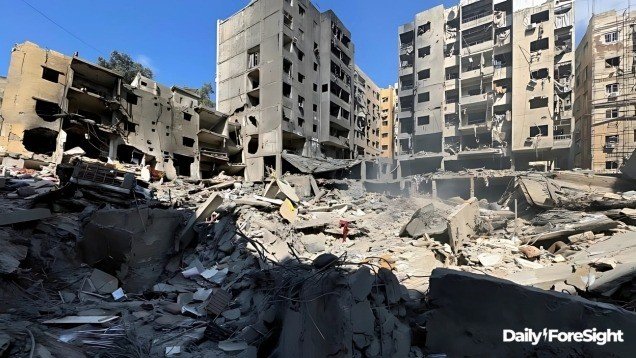
The impact of Yahya Sinwar’s leadership extends far beyond just the Gaza Strip. His death, if it happened, could have changed the power balance of camps within Hamas, and all those families are just caught in this perpetual conflict. As violence looms and tensions grow, the citizens seem to be left in a lurch.
The Message for the Future
Should Sinwar die, it could leave Hamas rudderless as one of its most important decisions in years approaches: whether to pursue full-blown war with Israel or end more drastic action. The international community is anticipated to observe how the planned event unfolds, as it could have implications for peace efforts and regional stability.
Conclusion
This is a story of the difficult flesh-and-blood truths behind political conflicts, and Yahya Sinwar’s death could have reminded us of this. The families of victims on both sides thirst for peace, and to achieve this, it is necessary to touch upon the root causes that lead people to commit these violent acts. For further background on the ongoing story, see The Jerusalem Post and Sky News.
FAQ
1. Who is Yahya Sinwar?
Yahya Sinwar is the leader of Hamas in Gaza, having risen to this position in 2017. He has been a central figure in the group’s military and political strategies. He played a significant role in the planning of the October 7, 2023, attacks on Israel
Encyclopedia Britannica Wikipedia.
2. What is Yahya Sinwar’s background?
Sinwar was born in 1962 in the Khan Younis refugee camp in the Gaza Strip. He studied at the Islamic University of Gaza and became involved in Islamist movements early in his life. He co-founded the internal security apparatus of Hamas and has been a key player in the group since its inception
Encyclopedia Britannica Wikipedia.
3. Why was Yahya Sinwar imprisoned?
Sinwar was sentenced to life in prison in 1989 for the killing of Palestinians accused of collaborating with Israel. He was released in 2011 as part of a prisoner swap for Israeli soldier Gilad Shalit
Encyclopedia Britannica UALR Public Radio.
4. What is Yahya Sinwar’s stance on Israel?
Sinwar is a hardliner who opposes any recognition of Israel and rejects the two-state solution. He believes in the armed struggle against Israel, making him a central figure in the ongoing conflict
5. What role did Yahya Sinwar play in the October 7, 2023, attacks?
Sinwar is believed to be one of the masterminds behind the attacks, which marked a significant escalation in the Israel-Hamas conflict. His planning and leadership have been key in shaping Hamas’ military strategy
Encyclopedia Britannica UALR Public Radio.
6. Has Yahya Sinwar been involved in hostage negotiations?
Yes, Sinwar was involved in orchestrating the capture of Israeli hostages, which has been a core strategy for negotiating the release of Palestinian prisoners. His own release in 2011 was part of such an exchange
7. Is Yahya Sinwar facing international charges?
In 2024, the International Criminal Court (ICC) sought to press charges against Sinwar for war crimes. He has also been designated as a terrorist by countries like the U.S.
These are the most common questions about Yahya Sinwar, reflecting his prominence as a key figure in the Israeli Palestinian conflict.
For further updates visit dailyforesight



